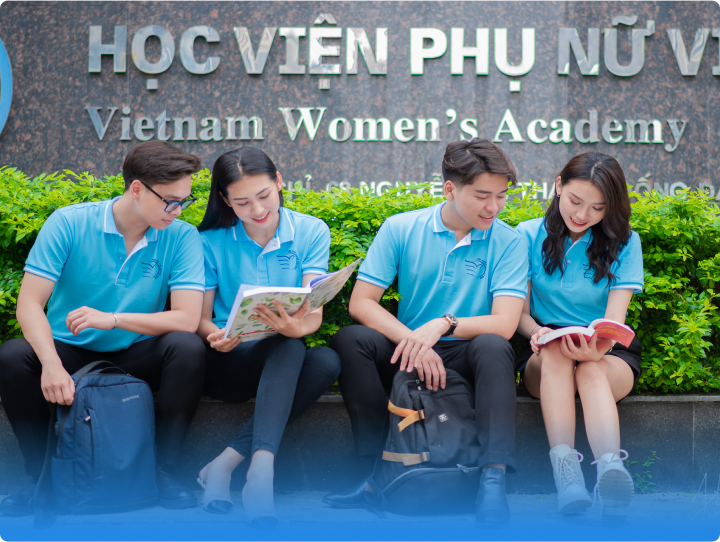– Total credits: 120 credits, excluding English courses (14 credits), physical education (3 credits) and national defense education (8 credits).
– The credits are distributed by the following courses:
+ General education: 29 credits, including 25 compulsory credits and 4 elective credits.
+ Basic core courses: 22 credits, including 22 compulsory credits
+ Major core courses and concentration courses (if applicable): 69 credits, including 59 compulsory credits and 10 elective credits.
1. General education (29 credits) – excluding physical education, national defense education and English
1.1. Political theory (11 credits)
1.2. Social sciences (11 credits)
1.3. English (14 credits)
1.4. Information technology – Natural sciences (3 credits), physical education, national defense education
1.5. Elective courses (Select 2 out of 5 courses, 4 credits)
2. Professional education courses (80 credits)
2.1. Basic core courses (22 credits)
2.2. Major core courses (28 credits)
2.2.1. Compulsory courses (24 credits)
2.2.2. Elective courses (select 2 out of 5 courses, 4 credits)
2.3 Concentration courses (if applicable)
- Counseling and Psychotherapy
Compulsory courses: 12 credits
Elective courses: 6 credits (Select 2 out of 6 courses)
- Psychology in Marriage and Family
Compulsory course: 12 credits
Elective courses: 6 credits (select 2 out of 4 courses)
Supplementary courses: 12 credits
2.4. Professional internship and graduation internship (6 credits), graduation thesis and equivalent: 6 credits
Alternative Courses to Graduation Thesis/Project

 Tiếng Việt
Tiếng Việt



